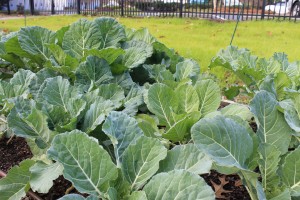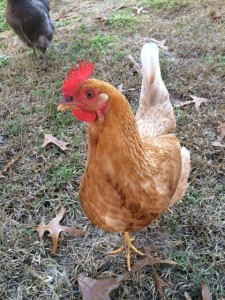New Year Resolutions for Gardeners
go.ncsu.edu/readext?437620
en Español / em Português
El inglés es el idioma de control de esta página. En la medida en que haya algún conflicto entre la traducción al inglés y la traducción, el inglés prevalece.
Al hacer clic en el enlace de traducción se activa un servicio de traducción gratuito para convertir la página al español. Al igual que con cualquier traducción por Internet, la conversión no es sensible al contexto y puede que no traduzca el texto en su significado original. NC State Extension no garantiza la exactitud del texto traducido. Por favor, tenga en cuenta que algunas aplicaciones y/o servicios pueden no funcionar como se espera cuando se traducen.
Português
Inglês é o idioma de controle desta página. Na medida que haja algum conflito entre o texto original em Inglês e a tradução, o Inglês prevalece.
Ao clicar no link de tradução, um serviço gratuito de tradução será ativado para converter a página para o Português. Como em qualquer tradução pela internet, a conversão não é sensivel ao contexto e pode não ocorrer a tradução para o significado orginal. O serviço de Extensão da Carolina do Norte (NC State Extension) não garante a exatidão do texto traduzido. Por favor, observe que algumas funções ou serviços podem não funcionar como esperado após a tradução.
English
English is the controlling language of this page. To the extent there is any conflict between the English text and the translation, English controls.
Clicking on the translation link activates a free translation service to convert the page to Spanish. As with any Internet translation, the conversion is not context-sensitive and may not translate the text to its original meaning. NC State Extension does not guarantee the accuracy of the translated text. Please note that some applications and/or services may not function as expected when translated.
Collapse ▲In the months of January and February the weather is cooler and there is less work to be done. It is a great time to plan for the upcoming spring. As gardeners, there are steps that we can take to improve the environment and ecosystems that surround us. Consider adopting one or more of these resolutions for your garden in the New Year:
Choose plant varieties that are low maintenance and easy to grow at the coast. Figs, muscadine grapes, rabbiteye blueberries and persimmons all grow well in New Hanover County. If you must grow pears, choose a variety that is resistant to fire blight (a common disease in our area) such as Seckel, Moonglow, Kieffer, or Magness. Avoid planting crops that will require a lot of pesticide sprays to produce a quality crop.
Incorporate fruit and vegetables into your landscape. Fruit trees can be a beautiful ornamental tree or shrub and small fruits and vegetables can be intermingled amongst your annuals and perennials. This helps to encourage diversity in the garden and native insects prefer that type of habitat. It also enhances the garden by providing different texture to the landscape.
 Plan to grow vegetables year round. In most coastal counties you can grow some sort of crop in the winter months. Row covers can be used to protect these crops from frost. Careful planning can provide you with a year round harvest and reduce your grocery bill. Crop rotation is a must in our area.
Plan to grow vegetables year round. In most coastal counties you can grow some sort of crop in the winter months. Row covers can be used to protect these crops from frost. Careful planning can provide you with a year round harvest and reduce your grocery bill. Crop rotation is a must in our area.
Commit to composting! Composting is a sustainable way to deal with garden waste and household food scraps that provides you with a valuable soil amendment and can reduce your fertilizer and pesticide applications. Adding compost to the soil increases the soils ability to hold water, thus improving plant growth and productivity.
Harvest, store and use your rainwater. Use cisterns or rain barrels to collect the water that runs off the roof – use this water first to irrigate your lawn, garden and container plantings.
Minimize your water needs. Improve the water holding capacity of your soil by adding organic matter. Mulch exposed soil in gardens and flowerbeds to suppress weeds and maintain soil moisture. When designing new plantings, choose plants that will be drought tolerant once established. Some examples are as follows: crape myrtle, Chinese hollies, juniper, rosemary, thyme and ornamental grasses.
Consider adding chickens, bees or other small livestock to your yard. If you are up for the additional responsibility and commitment, chickens, ducks, guinea hens, rabbits or other small livestock help cycle nutrients in your garden. Carefully managed poultry can control insect pests and weeds while providing nitrogen and phosphorous to improve soil fertility. Bees pollinate many of our vegetable crops. The loss of native pollinators makes the efforts of beekeepers even more important.
Have fun! Gardening along the coast can be a challenge but by choosing the right plant for the right place you can be a successful gardener. When I first moved to the area I was still trying to grow things that I loved but they just never survived. I finally came to the conclusion that I had to forgo those beloved plants for plants that were better adapted to our climate.
Be innovative! This is a great time of year to grab a cup of coffee and pick up your favorite plant catalog. I find inspiration in garden magazines and I love to learn about the new varieties growers are introducing to the industry.
Whichever resolution you choose, I want to wish you and your garden a Happy Holiday!




